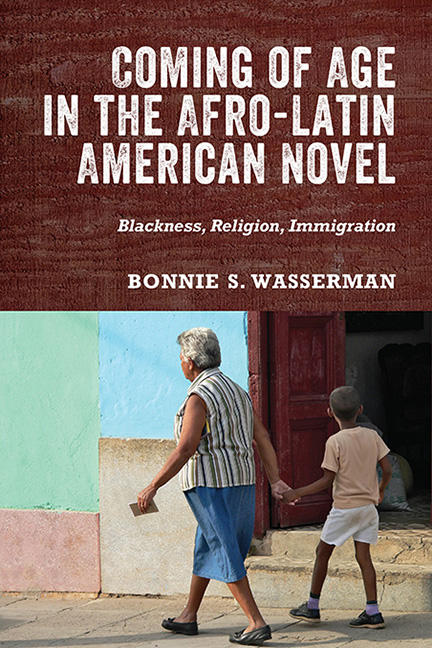Book contents
- Frontmatter
- Contents
- Introduction
- 1 The Intergenerational Bildungsroman in Daughters of the Stone and Ponciá Vicencio
- 2 The Epistolary Afro-Cuban Bildungsroman
- 3 Boys to Men: Masculinity in The Brief Wondrous Life of Oscar Wao and City of God
- 4 Reinventing the Afro-Latin American Bildungsroman
- Conclusion
- Bibliography
- Index
Introduction
Published online by Cambridge University Press: 16 July 2022
- Frontmatter
- Contents
- Introduction
- 1 The Intergenerational Bildungsroman in Daughters of the Stone and Ponciá Vicencio
- 2 The Epistolary Afro-Cuban Bildungsroman
- 3 Boys to Men: Masculinity in The Brief Wondrous Life of Oscar Wao and City of God
- 4 Reinventing the Afro-Latin American Bildungsroman
- Conclusion
- Bibliography
- Index
Summary
With each departure she returned, and when she left again she increased the starting point, advancing a little further on her course to find her children. The ritual of coming and going had been completed several times.
—Conceição Evaristo, Ponciá VicencioEvery summer Santo Domingo slaps the Diaspora engine into reverse, yanks back as many of its expelled children as it can… . Like someone has sounded… . Back home, everybody! Back home.
—Junot Diaz, The Brief Wondrous Life of Oscar WaoThis study examines how a centuries-old European genre has been transformed by contemporary Afro-Latin American novelists to address key aspects of the diaspora in various Caribbean and Latin American countries. While attention to Afro-Hispanic and Brazilian literature has increased in recent decades, few critics have focused specifically on the Afro-Latin American bildungsroman written in both Spanish and Portuguese. Postcolonialism provides a useful theoretical framework for analyzing this literature, especially because it explores the movement of populations domestically and internationally. As noted by Bill Ashcroft and his coauthors in The Empire Writes Back: Theory and Practice, “A major feature of post-colonial literatures is the concern with place and displacement. It is here that the special post-colonial crisis of identity comes into being.”
That crisis of identity has everything to do with the continuing movements of people. As Afro-Brazilian poet and novelist Conceição Evaristo stresses (in the first epigraph to this chapter) in her description of a Brazilian mother's search for her children who have gone to a distant city, “the ritual of coming and going” each time increases “the starting point” and, as we will see, works toward the final coming together of the family. Thus, this study of coming-of-age novels focuses on stories of young people searching for their families and, especially, a home. The second epigraph, from Pulitzer Prize–winning Dominican writer Junot Diaz, underscores how so many of these journeys calling young people “back home” pull them between nations with such different cultures that they experience difficulty understanding who they are. In addition to the movement of populations, another aspect of identity that Afro-Latin American writers examine relates to literary Blackness in different countries.
- Type
- Chapter
- Information
- Coming of Age in the Afro-Latin American NovelBlackness, Religion, Immigration, pp. 1 - 12Publisher: Boydell & BrewerPrint publication year: 2022

